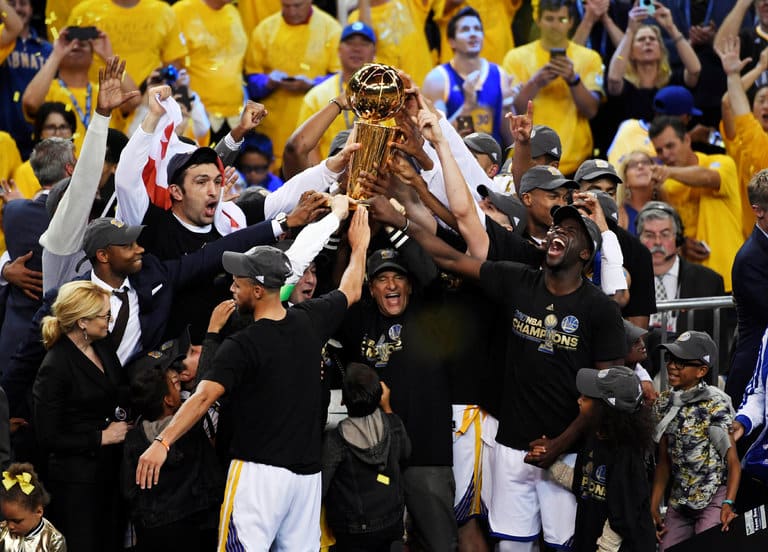Is Your Team Only As Strong As Its Leader?

With Travis Kalanick’s departure from Uber, there are numerous blogs and funds watching to see if Uber can maintain its unicorn status and growth predictions without its number one leader and founder.
In my mind that’s one big problem for Uber right there. Why is its leader seen as responsible for the company’s phenomenal success?
As comparison, I offer my own beloved Warriors (current NBA Champions, not to brag or anything…). Let’s look at some key parts of the NBA Champs last season:
- They added superstar Kevin Durant to their roster, adding to their already rich roster of NBA all-stars, most notably 2016 season MVP Steph Curry.
- Their coach ended up sidelined with extreme pain and discomfort for much of their playoffs journey.
- They lost their much-hyped first season game in a blaze of embarrassment to the Spurs (I was there – it was awful).
 So if you’re a Warriors fan like me, perhaps you enjoy the moment to gloat about our victory, but if not, “Why,” you might be asking, “should I care about an NBA basketball team?”
So if you’re a Warriors fan like me, perhaps you enjoy the moment to gloat about our victory, but if not, “Why,” you might be asking, “should I care about an NBA basketball team?”
Because the Warriors are a front and center example of what’s possible when there’s a roster of All-Stars instead of just a leader who’s front and center. When their coach was too injured to coach effectively, he handed the reigns to assistant coach Mike Brown who stepped up and led the team through a flawless first three rounds of playoffs.
And Kevin Durant, leading scorer and NBA MVP’s entrance to the Warriors meant that current MVP Steph Curry had to give up some of his scoring brilliance to make room for Durant. Although we have no idea what goes on in the background, on the court, all you see is seamless ball sharing, and going for the win, rather than a race to be the solo star and scoring leader.
And let’s not forget, all the sports writers who chronicle the Warriors, never stop talking about their camaraderie and their joy in playing the game. While winning is definitely foremost in their mind, there’s no question that these guys feel honored to play together and build their lives playing a game they love.
Compare that to the stories leaked from Uber the past year…
From engineers who complain of sexual harassment and are ignored and unprotected by HR to the CEO himself, yelling at his drivers, people who choose to work for his company, rather than listening and really hearing what’s happening for them.
This is not a company that you can believe is built on and growing from its love of the industry, and its joy in working and performing together.
Companies that believe people should be paid to work and not to love their work and find meaning in it are going to be on the losing end of the economy.
Numerous studies have shown that workers (even short-term gig economy workers) perform better and enjoy their jobs better when they feel they are part of something greater that has meaning beyond just their paychecks. And these interventions don’t take up a lot of time and energy, just the recognition that employees want to be more than a cog with a paycheck. They want to be part of a team, sharing joy and pride in their work – even if they aren’t highly paid NBA stars.
 And all of this is great in theory right. . . the next question is, how?
And all of this is great in theory right. . . the next question is, how?
Let me share one client story with you: One of my clients is struggling to trust his team right now. While his people have sometimes stepped up and performed, they have also let him down. “How,” he muses,“can I trust them with more responsibility when they don’t think about their audience enough, give unclear presentations, and don’t manage their people well enough?”
It’s a good question. And there aren’t easy answers. But what we’ve seen working together is that if he, as the leader, always provides the answers, two things happen:
- Your people don’t even try to provide innovative answers anymore. They just parrot what they think you want them to say. Often they even stop questioning you.
- You are constantly in the role of overseer, manager, smartest person in the room, and occasionally bully or nanny.
Is that really the role you want to play in your organization?
What would need to happen for you to step into the role of coach instead? A coach like Steve Kerr who can step out of the limelight, even out of the stadium and still record the wins?
Comment below and let me know what you ask your people when you are at your best coaching them? And/or what have your best coaching managers asked you?